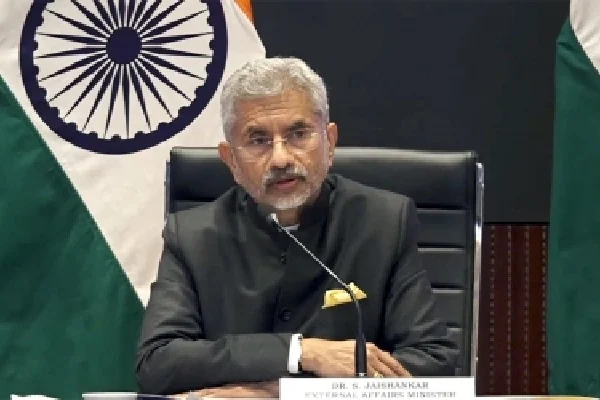In a recent development, the Maldivian foreign ministry has taken a step to block access to its website for Indian users, further exacerbating the already strained diplomatic ties between India and the island nation. This move comes amidst a fresh controversy involving the expected arrival of a Chinese research vessel, the Xiang Yang Hong 3, in the Maldives.
The diplomatic relations between India and the Maldives have hit a new low following the election of Mohamed Muizzu as the President of the Maldives. Tensions escalated as the Indian government closely monitored the movement of the Chinese research vessel en route to the Maldives, with its anticipated arrival in Male by February 8.
Currently sailing off the coast of Indonesia, the Xiang Yang Hong 3 is reportedly engaged in an ocean survey operation in the Indian Ocean Region (IOR). While officially classified as a research vessel, it is widely known as a Chinese spy ship with a primary objective of mapping the floor of the Indian Ocean. The vessel is equipped to provide data related to natural disasters and plays a role in mitigating potential risks.
The presence of the Chinese ship in the Indian Ocean Region comes on the heels of Maldives President Mohamed Muizzu’s recent visit to China. During the visit, both countries decided to deepen their cooperation for peace and stability at regional and global levels. The signing of the Action Plan for Building a China-Maldives Comprehensive Strategic Cooperative Partnership (2024-2028) and other agreements related to the Belt and Road, economic and technical cooperation, blue economy, digital economy, green development, infrastructure construction, and assistance for people’s livelihood underscored the strengthening ties between Maldives and China.
However, these developments have fueled the diplomatic rift between India and the Maldives, which had already been strained by derogatory remarks made against Indian Prime Minister Narendra Modi by Maldivian ministry. The diplomatic tension escalated with the Indian government keeping a close eye on the Chinese vessel’s movements in the region.
The Xiang Yang Hong 3 is part of China’s broader strategic interests in the Indian Ocean. Known for its ‘String of Pearls’ strategy, China aims to encircle India with strategic points of influence and control in the Indian Ocean. The Maldives, strategically located in the Indian Ocean, fits into China’s geopolitical plans for the region, raising concerns for India about its maritime security and influence in the Indian Ocean.
India has been wary of Chinese influence in its neighborhood, especially in countries that are part of its extended maritime neighborhood. Chinese vessels have been previously spotted in countries like Sri Lanka, Pakistan, and Djibouti, forming a network that has come to be known as China’s ‘String of Pearls.’ This strategy involves establishing a series of naval and military bases around India’s maritime periphery, aiming to secure maritime routes and enhance its strategic presence in the region.
The presence of the Xiang Yang Hong 3 in the Indian Ocean and the deepening ties between the Maldives and China add complexity to the geopolitical dynamics in the Indian Ocean Region, raising concern for foreign ministry. India’s concerns about maintaining its influence and security in the region are heightened, given the strategic importance of the Indian Ocean for trade, energy transportation, and overall regional stability.
As the diplomatic tensions continue to escalate, the blocking of Indian access to the Maldivian foreign ministry website adds another layer to the strained relationship between the two nations. The evolving situation underscores the delicate balance of power and influence in the Indian Ocean Region and the strategic calculations of major players like India and China. The coming days will likely witness further diplomatic maneuvers and geopolitical developments that could shape the future dynamics of the region.














